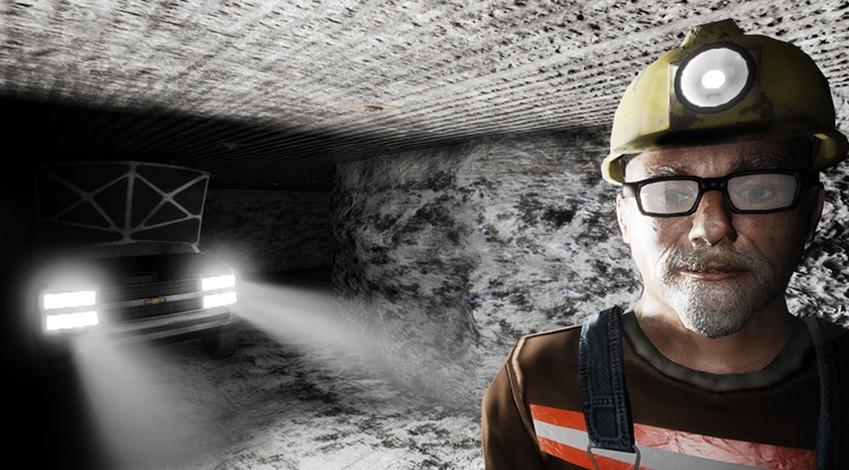UA has helped provide a license to Desert Saber, a company geared toward commercializing and distributing a new mining simulation program called Harry’s Hard Choices.
The technology’s priority is improving safety training for miners. Currently, training includes 40 hours of classroom instruction detailing safety measures and the correct course of action in the event of a mining emergency, as required by the federal government. However, according to Lowell Institute of Mineral Resources research scientist Leonard Brown, a principal inventor of the program and a founder of Desert Saber, this may not be the most effective way to prepare miners for the field.
“Current training approaches tend to be very non-interactive and are largely delivered through lectures using PowerPoint presentations and videos,” Brown said. “A large body of evidence on active learning tells us that this is just not a very effective way to teach safety or reinforce skills.”
Brown is also the principal researcher for “serious games,” which are software programs like Harry’s Hard Choices meant to improve safety and health training. The project is a direct result of Brown’s Ph.D. dissertation in computer science. Michael Peltier, safety training games programmer for the Lowell Institute’s Center for Mine Health and Safety, serves as the chief programmer.
RELATED: Hard rock at Old Main: UA mining students compete to drill massive boulder
Serious games created a new type of learning environment that Brown and his team believe will be beneficial to safety education. Similar to games played for entertainment, serious games hold the attention of participants and require them to make choices that could fundamentally change the outcome of programmed scenarios.
“As drivers of learning, serious games can immerse users, create suspense, and encourage competition, while they teach and evaluate skills at the same time,” Brown said.
This is Desert Saber’s first commercial product, one that Tech Launch Arizona, the Lowell Institute for Mineral Resources and the Eller College of Management’s McGuire Center for Entrepreneurship were all involved in bringing to the market.
Harry’s Hard Choices is meant to immerse participants in real life mining emergencies — requiring action to be taken in real time. Some trainees will emerge as leaders as competition is encouraged.
“Teams of people, named after your actual coworkers, are confronted with a pending emergency, like a fire. The team members talk and plan together for the evacuation of themselves and others that are now separated from the main group,” said Kevin McLaughlin, engineering and physical sciences senior mentor with Tech Launch Arizona who assisted with the formation of the company. “It’s really quite compelling.”
Decisions made by workers directly affect the outcome, paralleling what would occur in an actual mine. Game physics are designed to work as realistically as possible.
RELATED: Engineering Design Days showcases student inventions
The game tests teamwork, leadership and logic as well as knowledge of mining and safety procedures, resulting in a well-rounded educational experience. While there is freedom to make choices, Harry’s Hard Choices is still a teaching tool, and structure is an important component.
“There’s a set of things that we want people to know and know how to do, and we map the decisions that they make in the game to that set of competencies,” said Mary Poulton, principal researcher on the grants used to fund the project, as well as a retired University Distinguished Professor in several fields and a previous director of the Lowell Institute.
From there, the program can produce a “report card” for safety managers, indicating the strengths and weakness of the team as demonstrated in the game. Afterward, workers can improve their knowledge and play the game again to obtain a better score.
“We think that it really changes the whole paradigm for safety training,” Poulton said.
Poulton believes that the game is a good way to both engage workers and include all of the content required by the federal government. It fosters competition so that workers will strive to make the best decisions possible in the simulation.
“We think that this can go beyond mining to any industry where safety is an issue,” Poulton said, citing transportation, health care, and manufacturing as examples.
Positive feedback and interest in the game has come from all over the world, indicating a bright future for serious games.
Follow Nicole Morin on Twitter.









